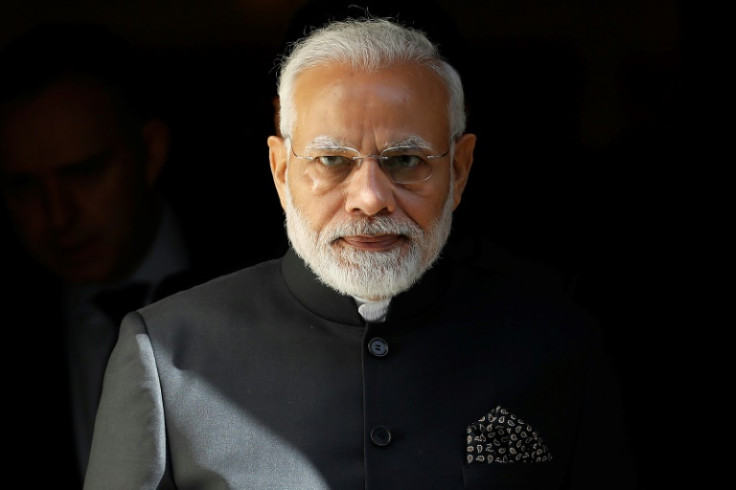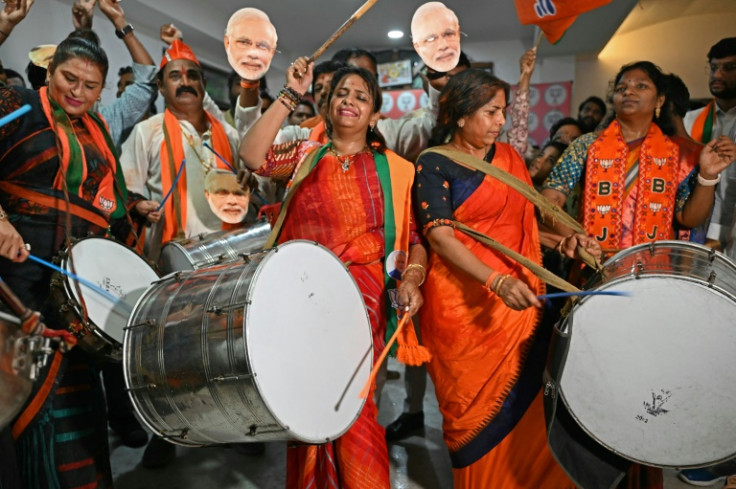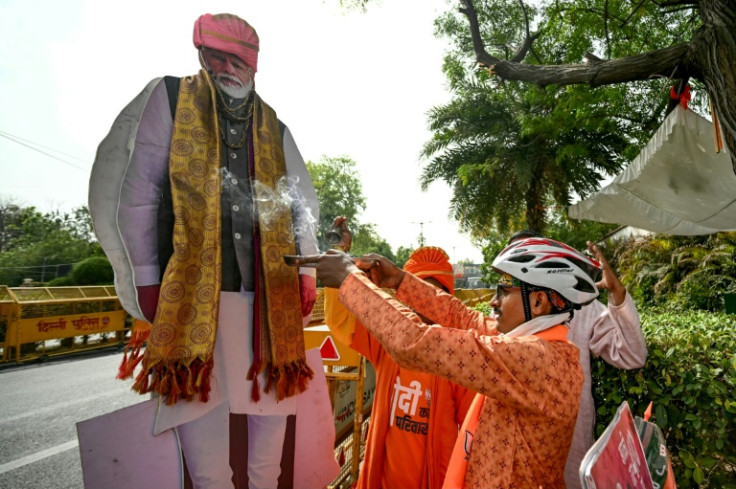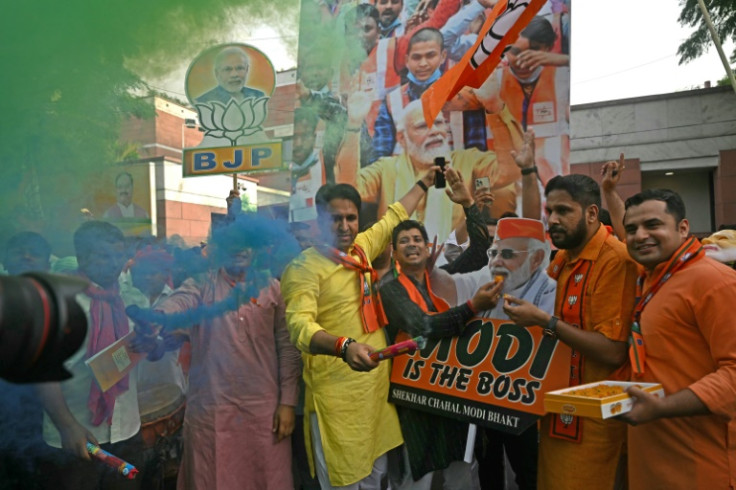Modi 3.0 To Push India Towards Becoming A Hindu Nation

Indian Prime Minister Narendra Modi's third-term win Tuesday was not the landslide victory he had wanted, but it still provides the mandate to power his Hindu nationalist agenda forward, analysts say.
Victory for Modi -- whose Bharatiya Janata Party (BJP) and allies were on track to win 291 out of 543 elected seats -- was forged in large part by the premier's appeal to the Hindu faithful, worrying minorities including the country's 200-million-plus Muslim community.
Modi's decade as premier has seen him cultivate an image as an aggressive champion of the country's majority faith, holding well-publicised temple visits, fasts and meditations to burnish his religious credentials.
"God has chosen us to serve Bharat (India) and fulfil our role in our country's journey towards excellence," Modi wrote in an op-ed Monday in the Indian Express, using the country's name in Sanskrit, a word dating back to ancient Hindu scriptures.
But a resurgent opposition proved stronger than many had predicted, and for the first time in a decade, the BJP is without an overall majority of its own and dependent on alliance partners.
"For BJP, complacency was one of the biggest enemies," Nistula Hebbar, political editor of The Hindu newspaper told AFP.

"We will now see an entirely new Modi, because we've never seen Modi operate a government without a full majority."
It forces Modi to tread more carefully to ensure backing for more controversial policies.
"With this, we come back to a more traditional form of Indian politics where there will be an alliance government," said Hartosh Singh Bal, the political editor of The Caravan magazine in New Delhi.
But if Modi can keep his allies onboard, his third term will see the BJP introduce new policies that would likely further blur the line between state and religion -- despite India's secular constitution.
"They have already been following the agenda to make India a Hindu nation," political analyst Ramu Manivannan told AFP.
"That's their ultimate goal and they are making no effort to hide it."
Among the planned policies is the potential introduction of a new national common civil code, to standardise laws across all religious communities.

India's 1.4 billion people are subject to a common criminal law, but rules on personal matters such as marriage, divorce and inheritance vary based on customary traditions.
Women's rights vary considerably depending on which code they fall under -- Hindu sons and daughters theoretically enjoy equal inheritance rights, while Muslim daughters are only entitled to a fraction of any male heir's inheritance.
Many right-wing politicians, jurists and reformists have described these custom-based codes as regressive and have lobbied for a legal framework that would apply to all Indians equally.
But many communities, particularly Muslims, fear the new law would encroach on their religious laws and see it as an attack on their identity and against India's constitution.
With their fresh mandate, the BJP is also likely to see calls from Hindu activists to take more religious sites from Muslims.
The calls have grown louder since Modi inaugurated a grand temple to the deity Ram in January, built on the grounds of a centuries-old mosque in Ayodhya razed by Hindu zealots in 1992.

Other locations across India's north include Mathura and Varanasi, where activists have sought to replace centuries-old Islamic monuments with Hindu temples.
"This is definitely going to be an issue in the coming years. They (BJP) don't say it openly but they have given enough subtle hints," said political analyst Sunita Aaron.
"The BJP manifesto mentioned only the Ram temple, but political parties can always change tracks."
Modi's third term could also likely see the "divisive" revision of electoral boundaries based on population.
That would likely mean a significant expansion of seats in northern states -- which the BJP considers its heartland -- reducing the overall parliamentary punch of opposition areas in the relatively less-populous south.
"It will be quite testing for the Indian union and the federal polity," Manivannan said, calling the proposal "quite divisive".
"The southern states won't take it lying down," Manivannan added. "Absolute power demolishes reason, you have to be cautious about that."
© Copyright AFP 2025. All rights reserved.





















